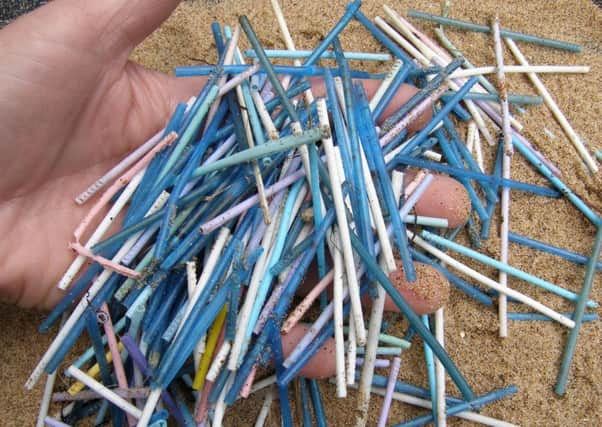Join the challenge to go plastic free!


The Marine Conservation Society (MCS), the UK’s leading marine charity, is challenging locals to say goodbye to conveniences like pre-packed sandwiches, ready meals and plastic-bottled drinks for a day, a week or the entire month of June.
Last year almost 850 people took part in the MCS Plastic Challenge, and over 95 per cent said they would continue reducing their plastic use after the challenge was over. The charity hopes even more people will take part in 2016.
Advertisement
Hide AdAdvertisement
Hide AdDr. Sue Kinsey, MCS technical waste specialist, said she was amazed at the lengths people had to go to find products that didn’t contain plastic of any kind.
She said: “By its very nature, this is a tricky challenge. It highlights how reliant we have become on plastic. Last year challengers were making their own bread, yogurt, cleaning and bathroom products like mouthwash and sugar scrubs so as not to use plastic containers that are used once, then thrown out.”
Last year, people reported the hardest items to find plastic-free were dried goods like pasta, rice and pulses, along with milk and loo paper.
The challenge comes after MCS revealed the amount of plastic litter on our beaches has increased by 180 per cent in the last 20 years and has become a massive threat to marine wildlife.
Advertisement
Hide AdAdvertisement
Hide AdPlastic bags, bottles and tiny plastic pieces are regularly found in the stomachs of turtles and other sea creatures, and in some cases have caused their death from starvation or choking.
Dr Kinsey said: “Reducing plastic litter will certainly be an uphill climb – but if we can all cut down the amount we use, there’s no doubt our marine environment will be a healthier place.
“We want to change people’s attitudes towards single-use plastics, and to encourage people to value plastic as a resource – not just buying stuff without any thought of the environmental impact. People taking on the Plastic Challenge are often shocked to find out just how much single-use plastic is used every day.”
To find out more and register to take part in the Plastic Challenge visit Plastic Challenge